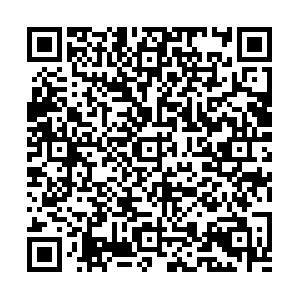| [1] |
Lieber J, Butera G, Hanson M, et al. Factors that influence the implementation of a new preschool curriculum:implications for professional development[J]. Early Education & Development, 2009(20):456-481.
|
| [2] |
Bogard K, Traylor F, Takanishi R. Teacher education and PK outcomes:Are we asking the right questions?[J]. Early Childhood Research Quarterly, 2008, 23(1):1-6.
|
| [3] |
Ying Guoa, Joan N. Kaderavekb, Shayne B. Piastaa, Laura M. Justicea & Anita McGintyc. Preschool teachers' sense of community, instructional quality, and children's language and literacy gains[J]. Early Education & Development, 2011, 22(2):206-233.
|
| [4] |
Mcginty A S, Justice L, Rimm-Kaufman S E. Sense of school community for preschool teachers serving at-risk children[J]. Early Education & Development, 2008, 19(2):361-384.
|
| [5] |
胡静. 专业共同体理论视角下的幼儿教师专业发展[J]. 早期教育(教师版), 2013(02):12-14.
|
| [6] |
崔迪. 美国早期教育教师专业学习共同体研究[D]. 东北师范大学, 2017:103-108.
|
| [7] |
于泽元, 邱德峰. 教师共同体的泛化与反思[J]. 教师教育学报, 2016, 3(06):24-31.
|
| [8] |
霍德. 学习型学校的变革[M]. 北京:中国轻工业出版社, 2004:6.
|
| [9] |
单志艳. 走向中国特色教师专业学习共同体的教研组变革[J]. 教育研究, 2014, 35(10):86-90.
|
| [10] |
孙元涛. 教师专业学习共同体:理念、原则与策略[J]. 教育发展研究, 2011, 33(22):52-57.
|
| [11] |
陈晓端, 任宝贵. 当代西方教师专业学习共同体的理论与实践[J]. 当代教师教育, 2011, 4(01):19-25.
|
| [12] |
Thornton Kate, Wansbrough Deborah. Professional learning communities in early childhood education[J]. Journal of Educational Leadership, Policy and Practice, 2012(27):51-64.
|
| [13] |
Shirley M. Hord. Professional learning communities:communities of continuous inquiry and improvement[M]. Austin, Texas:Southwest Educational Development laboratory, 1997:6-25.
|
| [14] |
Edwards S, Nuttall J. Professional learning in early childhood settings[M]. Rotterdam:Sense Publishers, 2009:1-8.
|
| [15] |
陈向明. 从教师"专业发展"到教师"专业学习"[J]. 教育发展研究, 2013, 33(08):1-7.
|
| [16] |
瞿葆奎. 教育学文集. 第12卷, 教师[M]. 北京:人民教育出版社, 1991:470-478.
|
| [17] |
孙元涛. 教师专业学习共同体:理念、原则与策略[J]. 教育发展研究, 2011, 33(22):52-57.
|
| [18] |
Alvestad M, Rthle M. Educational Forums:frames for development of professional learning. A project in early childhood education in Norway[J]. European Early Childhood Education Research Journal, 2007, 15(3):407-425.
|
| [19] |
贺菲. 构建协作式文化促进教师专业发展[J]. 西北成人教育学报, 2005(01):41-43.
|
| [20] |
范良火. 教师教学知识发展研究[M]. 上海:华东师范大学出版社, 2003:211.
|
| [21] |
张亚平. 专业学习共同体:教师专业发展的有效途径[A]. 扬州大学基础教育研究所、山东师范大学教师教育学院. 《当代教育评论》2017第6辑[C]. 扬州大学教育科学学院, 2017:5.
|
| [22] |
Sharmahd N., Peeters J., Van Laere K., Vonta T., De Kimpe C., Brajković S., Contini L., Giovannini D. Transforming European ECEC services and primary schools into professional learning communities:drivers, barriers and ways forward, NESET II report[R]. Luxembourg:Publications Office of the European Union, 2017:45.
|
| [23] |
DuFour R. Schools as learning communities[J]. Educational Leadership, 2004(8):6-11.
|
| [24] |
时长江, 陈仁涛, 罗许成. 专业学习共同体与教师合作文化[J]. 教育发展研究, 2007(22):76-79.
|
| [25] |
胡波. 合作:新课程对教师的新要求[J]. 课程. 教材. 教法, 2004(07):79-83.
|
| [26] |
姜新生. 从个人主义到自然合作:教师文化的理性建构[J]. 教师教育研究, 2010, 22(03):5-9+15.
|
| [27] |
Leonard P. Understanding the dimensions of school culture:value orientations and value conflicts[J]. Journal of Educational Administration & Foundations, 1999(13):27-53.
|
| [28] |
Heikka J, Waniganayake M, Hujala E. Contextualizing distributed leadership within early childhood education:current understandings, research evidence and future challenges[J]. Educational Management Administration & Leadership, 2013, 41(1):30-44.
|
| [29] |
Stamopoulos E. Reframing early childhood leadership[J]. Australasian Journal of Early Childhood, 2012(37):42-48.
|
| [30] |
Mintz berg, H. The leadership debate with Henry Mintzberg:Community-ship is the answer[N]. Financial Times, 2006-10-23.
|
| [31] |
韦恩·K·霍伊等. 教育管理学:理论研究实践(第七版)[M]. 范国睿译. 北京:教育科学出版社, 2007:403-405.
|
| [32] |
Olivier, D. F., & Hipp, K. K., & Huffman, J. J. Professional Learning Community Assessment-Revised(PLCA-R)[EB/OL]. 2021-05-10. http://www.plcassociates.org/assessments/formal/plca-r/.
|

 点击查看大图
点击查看大图



 下载:
下载: